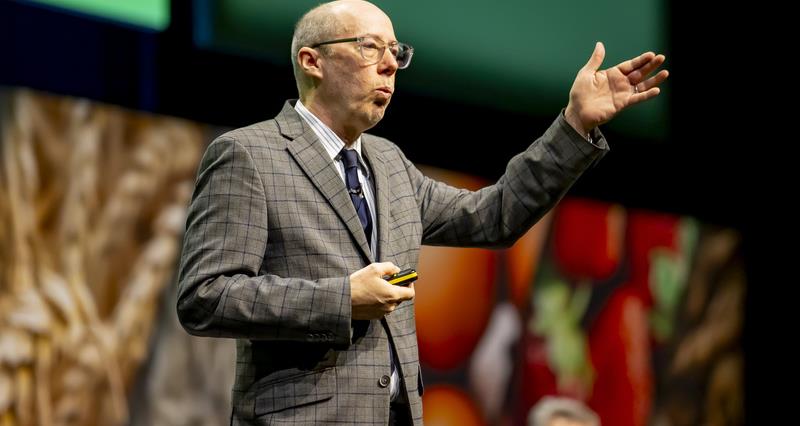
‘Food is not broken’
“If it is broken, when was it not? Was it better ten years ago, 50 years ago, 100 years ago? I don’t think so. In terms of childhood mortality, we’re at the lowest point in human history. About 10% of the people on the planet are going to bed hungry, it’s unacceptable. But 60 years ago, it was 30%.”
In fact, the former senior advisor on food policy in the US Department of State said it wasn’t a case of “things are bad and getting worse” but “things are good and getting better – but not fast enough”.
“Yes, we’re using a little bit more land for agriculture, but we’re producing dramatically, dramatically more food than we were in 1960,” he said.
Taking the global view, he said that meant that while agriculture worldwide is one of the biggest drivers of deforestation, agricultural innovation and efficiency in places like the UK was also a big reason forests still exist on their current scale.
“There are about 3.6 billion hectares of forestry on the planet, and what people forget is that, if today we were farming the way we were in 1960, we would need 1 billion additional hectares of land to produce the food we do now.
“That’s what innovation has delivered, but people don’t credit agriculture for saving 1bn hectares of forest.”
